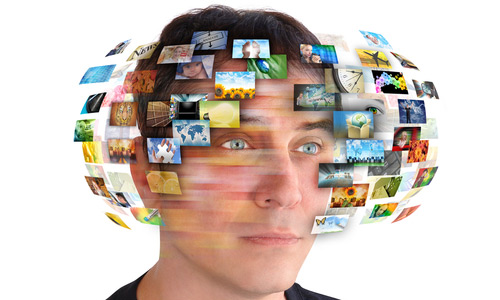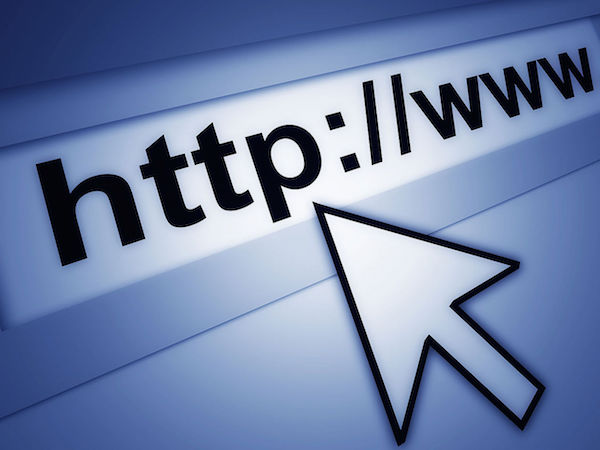We are living in an age when we can discover, share and publish new information on countless online platforms.
The amount of information we have access to is continually growing, and we are connected to a point where online resources are outdating traditional media.
Experts are calling this era of online media saturation the Information Age and although there are many positives, its not without flaws.

It’s well known that an increasing desire for immediacy can lead us to favour timeliness over accuracy. Additionally, the vast amount of information at our fingertips can also affect the way we interpret and use it.
Mark Civitella is an expert in online culture and a lecturer at La Trobe University. He says that whilst users may be subject to an incomprehensible amount of information, they are generally able to organise it into a more coherent form.
“There is a myth about information overload and our access to information,” he tells upstart. “We have access to more information than at any other time in recorded history but we aren’t forced to consume it. We have adapted to have our own spam filter, and have learned to both ignore the spam and to also find what we are looking for.”
Researchers have suggested that young adults are most susceptible when it comes to misinformation.
Growing up in such a technology-driven world has led to a reliance on online sources and platforms for communication and education. This can have concerning impacts on young adults’ perception and their processing of information and sources.
Civitella believes the biggest threat to understanding and processing information is our own confirmation bias.
“Daniel Kahneman argued that we look for confirmation bias and aren’t therefore rational beings,” he says. “We look for what we want to believe from sources that we trust. We find what we want to believe, so then who is right?”
As a result, the majority of users default to familiar, trusted sources to get their information.
Studies have found that 92 per cent of Google searches don’t go beyond the results shown on the first page and that 60 per cent of users will select amongst the top three search results.
A recent study conducted by Pew Research Centre in the US revealed that 74 per cent of users feel better informed when it comes to international news thanks to the internet. When this is compared to another study by the same organisation, it seems users could be putting too much trust in online sources.
The study found that only eight per cent of information on websites posted by individuals was accurate. This is compared to 56 per cent accuracy from government-controlled sites and 62 per cent accuracy from established media sites.
In order to minimise misinformation, some users restrict their searches to verifiable sources.
Other users, however, create intentionally misleading content, some of which has proven dangerous and caused damage to both people and property.
False Apple advertisements were created by 4chan users in 2013, alleging that iPhones were waterproof and could be recharged by placing the device in a microwave. Whilst most users were able to scrutinise the source of this information, others, including high-profile celebrities, fell for the hoax.
The best thing about the new iPhone is that it’s waterproof! Incredible.
— Ellen DeGeneres (@TheEllenShow) September 24, 2013
Anyone have a iPhone for sale? Someone told me iOS7 was waterproof and obviously mine wasn’t….
— Sara Jo Zimmerman ❤️ (@SaraJoWalls) September 24, 2013
iOS 8 Wave pic.twitter.com/C7mqg4chin
— Dr. E (@LmaoAtDoseHoes) September 18, 2014
The vast amount of information online is not only affecting the way we source and verify this information. According to a study by the Royal Institute of Technology in Sweden, it’s also affecting our short-term memory.
“Working memory enables us to filter out information and find what we need in the communication. When you are on Facebook, you are making it harder to keep the things that are ‘online’ in your brain that you need,” Erik Fransén, head of the study, said.
So how do we avoid information overload or misinformation in this day and age?
According to Civitella, the key is to always be wary and avoid our own confirmation bias.
“Be wary that all the information you receive is open to interpretation, often legitimate sources can have biases and others can claim to be legitimate sources,” he says. “Be wary across the board and look for confirmation of information.”
Featured image: SparkCBC via Flickr
 Kieran Balmaceda is a third-year Bachelor of Strategic Communication student at La Trobe University. You can follow him on Twitter: @KieranBlam.
Kieran Balmaceda is a third-year Bachelor of Strategic Communication student at La Trobe University. You can follow him on Twitter: @KieranBlam.







